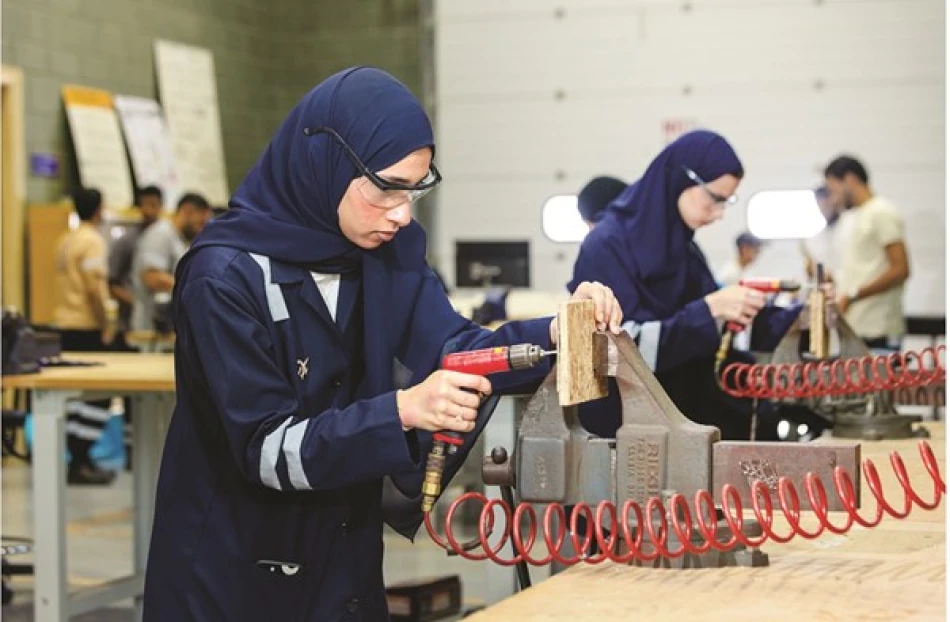
4,100 Graduates Celebrate Achievements in Higher Technical Colleges' Bachelor's and Diploma Programs
UAE Technical Colleges Graduate Record 4,100 Students as Private Sector Embraces Local Talent
The UAE's Higher Colleges of Technology has launched its 2025 graduation season with over 4,100 graduates across engineering, health sciences, business, and technology fields—a remarkable 40.6% increase from the previous year. With 95% of recent graduates securing private sector employment within nine months, the milestone signals a maturing workforce strategy that positions Emirati talent at the center of economic diversification efforts.
A Strategic Investment in Human Capital Pays Off
The graduation ceremony, held under the theme "Ambition Without Limits," represents more than academic achievement—it reflects the UAE's calculated bet on technical education as an economic driver. Dr. Ahmed Belhoul Al Falasi, Minister of Sports and Chairman of the Higher Colleges of Technology, emphasized that these graduates join over 85,000 alumni who have entered the workforce over recent decades, forming a skilled foundation for both public and private sector growth.
This approach mirrors successful models in Singapore and South Korea, where technical education institutions became pipelines for rapid industrialization. However, the UAE's focus on applied sciences and technology positions it uniquely for the digital economy transition.
Private Sector Integration Reaches New Heights
The employment statistics reveal a significant shift in the UAE's labor market dynamics. Dr. Faisal Al Ayyan, Director of the Higher Colleges of Technology, reported that 61% of 2025 graduates found employment within nine months, with 95% joining private companies. This compares favorably to the 2023-2024 cohort, where 84% found employment with 91% in private sector roles.
These figures suggest that Emiratization—the policy of increasing UAE national employment in private companies—is gaining genuine traction beyond government mandates. Major employers including Burjeel Holdings, GEMS Education Group, and Citibank UAE have publicly committed to hiring and training these graduates, indicating corporate confidence in their capabilities.
Market Implications for Investors
For investors tracking UAE market dynamics, this trend signals reduced dependence on expatriate expertise in technical roles—a long-term positive for domestic economic resilience. Companies demonstrating strong Emiratization performance often receive preferential treatment in government contracts and licensing, creating competitive advantages for early adopters of local talent strategies.
Scaling Up: 7,000 Graduates Expected by 2026
The colleges are preparing for continued expansion, with projections indicating 7,000 annual graduates by 2026. Current enrollment stands at 25,730 students, with women comprising 70% of the student body—a demographic shift that could reshape traditional industry gender balances, particularly in engineering and technology sectors.
This growth trajectory positions the UAE ahead of regional competitors in technical workforce development. While Saudi Arabia's Vision 2030 includes similar technical education goals, the UAE's established track record and higher graduation rates provide a competitive advantage in attracting knowledge-intensive industries.
Industry-Specific Impact: Healthcare and Technology Lead
Graduate testimonials highlight the practical relevance of their training. Fatima Ali Al Ali, who achieved a perfect 4.0 GPA in Medical Laboratory Sciences, represents a new generation entering healthcare roles as the UAE expands its medical tourism and biotechnology sectors. Similarly, Said Abdullah Al Saadi's transition from electrical engineering studies to immediate private sector employment demonstrates the alignment between curriculum and market needs.
The emphasis on health sciences graduates particularly supports the UAE's healthcare sector expansion, with companies like Burjeel Holdings specifically citing these programs as crucial for their growth plans.
Regional Context: Leading the Gulf's Workforce Transformation
Compared to other Gulf states still heavily reliant on expatriate technical expertise, the UAE's graduation rates and employment success suggest a more sustainable economic model. Qatar and Bahrain face similar challenges in developing local technical capabilities, but neither has achieved the scale or private sector integration demonstrated by these figures.
The 40.6% year-over-year increase in graduates also indicates that the UAE's education investments are accelerating rather than plateauing, suggesting sustained commitment to this workforce development strategy despite global economic uncertainties.
Looking Forward: Economic Diversification Through Education
These graduation figures represent more than educational success—they signal the UAE's transition toward a knowledge-based economy less dependent on oil revenues and expatriate expertise. With graduates entering sectors from renewable energy to financial technology, this cohort will likely play crucial roles in implementing the UAE's 2071 centennial vision.
For businesses operating in or considering UAE market entry, the availability of technically skilled local talent reduces operational risks associated with visa dependencies and cultural integration challenges. This workforce development success story positions the UAE as an increasingly attractive destination for knowledge-intensive industries seeking stable, skilled labor markets in the Middle East region.
Most Viewed News

 Layla Al Mansoori
Layla Al Mansoori






